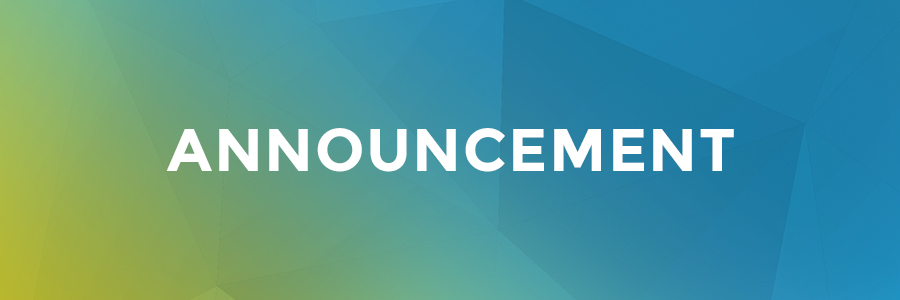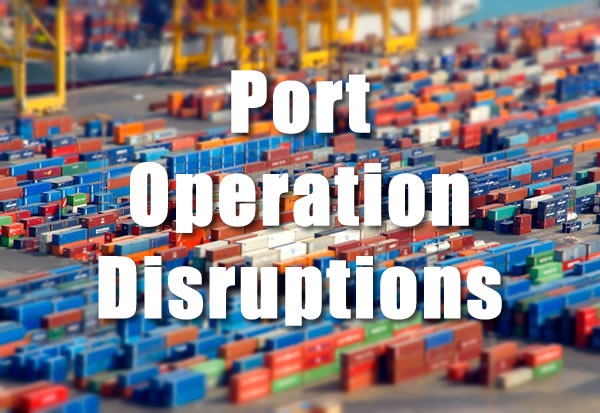The Peru – Australia Free Trade Agreement ( PAFTA ) came into force on 11th February 2020.
The Free Trade Agreement between Australia and Hong Kong, China ( A-HKFTA ) came into force on 17th January 2020.
Update on FTA negotiations
FTAs not yet in force
Below is the list of FTAs that have been concluded but have not yet entered into force.
Australia-Hong Kong Free Trade Agreement
Australia and Hong Kong signed the Australia-Hong Kong Free Trade Agreement (A-HKFTA) and the associated Investment Agreement on 26 March 2019. These agreements mark a significant milestone in our already substantial trade and investment relationship.
Indonesia-Australia Comprehensive Economic Partnership Agreement
Australia and Indonesia announced the substantive conclusion of negotiations on the Indonesia -Australia Closer Economic Partnership Agreement (IA-CEPA) on 31 August 2018.
This agreement will launch a new chapter in economic relations between Australia and Indonesia.
Peru-Australia Free Trade Agreement
The Peru-Australia Free Trade Agreement (PAFTA) was signed by Australia and Peru on 12 February 2018.
Pacific Agreement on Closer Economic Relations (PACER) Plus
PACER Plus was signed in Nuku’alofa in Tonga on 14 June 2017 by Australia, New Zealand and eight Pacific Island countries — Cook Islands, Kiribati, Nauru, Niue, Samoa, Solomon Islands,Tonga and Tuvalu.
FTAs under negotiation
Free trade agreements open up opportunities for Australian exporters and investors to expand their businesses into key overseas markets.
Australia-European Union Free Trade Agreement
- Australia and the European Union (EU) launched negotiations for a free trade agreement (FTA) on 18 June 2018. As a bloc, the EU is Australia’s second largest trading partner, third largest export destination, and second largest services export market. The EU was Australia’s largest source of foreign investment in 2018.
Free Trade Agreement negotiations with the Gulf Cooperation Council (GCC), comprising Bahrain, Kuwait, Oman, Qatar, Saudi Arabia and the United Arab Emirates, commenced in July 2007. These negotiations were preceded by bilateral FTA negotiations with the UAE, which were abandoned following a decision by GCC Ministers to only negotiate FTAs as a group. To date, there have been four rounds of GCC-Australia FTA negotiations, with the last one held in June 2009.
Recent years have seen remarkable growth in the trading relationship between India and Australia, fuelled by the many complementarities between the two economies. Two-way trade in goods and services has grown in value from $13.6 billion in 2007 to $30.4 billion in 2018.
India is the world’s largest democracy and is a market of 1.3 billion people. Its youthful population, diversified economy and growth trajectory present significant opportunity for Australian business, including in education, agriculture, energy, resources, tourism, healthcare, financial services, infrastructure, science and innovation, and sport.
Australia and India launched negotiations for a Comprehensive Economic Cooperation Agreement in May 2011. There have been nine rounds of negotiations, the most recent of which was held in September 2015.
The Australian Government is putting its weight behind enhancing economic ties with India. On 22 November 2018, the Government formally endorsed the independent India Economic Strategy and its ambitious vision for bilateral trade and investment by 2035.
Australia and the Pacific Alliance launched negotiations for a Free Trade Agreement (FTA) on 30 June. A regional trading bloc comprising Chile, Colombia, Mexico and Peru, the Pacific Alliance’s GDP was worth over USD $1.8 trillion in 2015-16. Over the last decade, Pacific Alliance members had some of the fastest growing economies in the region. The four countries, taken together, account for 37 per cent of Latin America’s population, 35 per cent of its nominal GDP, 46 per cent of its exports, and 50 per cent of its total imports.
A Pacific Alliance FTA would enable Australian businesses to access the opportunities presented by that growing market. It would also strengthen our economic relationship with Latin America and provide an opportunity for Australian businesses to diversify their export markets.
At the 3rd Regional Comprehensive Economic Partnership (RCEP) Summit in Bangkok on 4 November 2019, leaders from 16 Indo-Pacific countries — Australia, Brunei Darussalam, Cambodia, China, India, Indonesia, Japan, the Republic of Korea, Lao PDR, Malaysia, Myanmar, New Zealand, the Philippines, Singapore, Thailand and Vietnam — agreed on the importance of RCEP as a signal of the region’s collective commitment to open trade and investment.
Changes to biosecurity cost recovery

The government has decided to expand the types of biosecurity activities to be cost recovered under the Australian Government Cost Recovery Guidelines. This includes biosecurity assurance, analytics and risk mitigation activities.
These are critical to managing the risks posed by goods and vessels coming into the country.
The government’s decision includes increasing the following charges:
- Full Import Declaration charge—air from $33 to $38.
- Full Import Declaration charge—sea from $42 to $49.
- Vessels greater than or equal to 25 metres—arrival charge from $920 to $1054.
- the Australian Government has decided to expand the types of biosecurity activities that are cost recovered.
- The department has published an update to the Biosecurity Cost Recovery Implementation Statement.
- The new charges will start 1 January 2020. Your normal billing and invoicing arrangements will reflect this change.
Shipping Documents
With the commencement of the BMSB season on September 1st 2019 this is a reminder that you send us your shipping documents as soon as possible, particularly if your goods are subject to BMSB measures to ensure you allow us enough time to process them and avoid and additional charges or delay on delivering your shipment.
Based on last year’s BMSB season it’s going to be a challenging time for all importers and we take this opportunity to ask you to have your suppliers forward your documents promptly to our agent (where we are handling your forwarding) and also for shipments sent on a CIF basis.
Typhoon hits Taiwan and China
Twin Typhoons are affecting all vessel movements to and from Far East Asian ports at present, please see below link detailing the course of the hurricanes.
Detail News
Vessel movements will be affected and this will have a knock on effect with arrival times into Australian ports.
BMSB Seasonal measures 2019-20
Brown Marmorated Stink Bug (BMSB) Seasonal measures 2019-20 are just around the corner measures commence from September 1st 2019 through to 31st May 2020 inclusive, please read the document for a complete guide and if your goods will be impacted.
Severe Disruption at Hong Kong Airport
Severe disruptions to flights in and out of Hong Kong escalated on Monday after protesters brought the city to a standstill.
Authorities decided to reschedule flights from noon yesterday after many earlier flights were cancelled. Pilots and crews from Cathay Pacific took work in the stop-work action resulting in approximately 70 outbound and some 60 inbound flights of the national flight carrier being cancelled.
Approximately 60 flights from other airlines were also cancelled and passengers were advised to check with airlines for confirmation of flight departure before heading to the airport.
Demonstrators also targeted key transport links and the airport’s high-speed rail service was suspended because of obstructions on trains and platforms.
Hong Kong Chief Executive Carrie Lam condemned protesters for pushing Hong Kong to the verge of a “very dangerous situation,” at a press briefing on Monday.
Naturally freight movements have been severely affected by all the flight cancellations, we will keep you advised of further developments.
Continued Terminal Disruption – DP World Port Botany
Maritime Union Australia stop work meeting this Thursday and Friday for 48 hours
DP World Sydney has received notification from the Maritime Union of Australia (MUA) of ongoing Protected Industrial Action (PIA)
48HR Stoppage will commence Thursday 18th July at 0600.
Terminal Operations will cease as per below:
Last time zone 0500 Thursday 18/07/19
Gates will close 0600 Thursday 18/07 Sharp
Terminal will commence operations
Saturday 20/07/19 at 0600
Vessel Receivals & LFD’s will be updated to 1-Stop to reflect the 48hr stoppage
Terminal Issues and Protected Industrial Action
Patrick Terminal Port Botany
The above terminal has been closed since 1800 08/07 and reopened today at 1400 09/07
The terminal was shut due to an ‘unforeseen event’
The terminal has now reopened and back up to running at full operations
DP World Terminals Australia
Due to Protected Industrial Action, the above terminals will be closed as mentioned below
Terminal operations at each location will cease for a period of 48 hours in Brisbane, Sydney and Fremantle, and 96 hours in Melbourne, planned as follows:
Monday 8th of July 2019 – Brisbane from 0600 for 48 hours
Wednesday 10th of July – Melbourne from 0600 for 96 hours
Thursday 11th of July – Fremantle from 0600 for 48 hours
Thursday 11th of July – Sydney from 0600 for 48 hours
GPSM will ensure all clients are kept up to date with any changes to the delivery schedules and any shipments that may be affected due to these closures
Port Operation Disruptions
Port Operation Disruptions:
DP World Australia has advised that terminal operations will be subject to Protected Industrial Action from 1st July 2019 as follows:.
This action will disrupt all deliveries to/from the port terminals during these times
Schedule of planned terminal meetings
Monday 1 July 2019
MELBOURNE – 4 hours from 1200 – 1600
FREMANTLE – 4 hours from 1200 – 1600
All terminal operations will be stopped during these hours.
Tuesday 2 July 2019
BRISBANE – 4 hours from 1300 – 1700
Vessel operations and road operations to the Old Terminal are affected. Road operations to the automated modules will continue as normal.
Wednesday 3 July 2019
SYDNEY – 4 hours from 0200 – 0600, 4 hours from 1200 – 1600
All terminal operations will be stopped during these hours.
DPWA has also been advised of certain working bans and limitations, occurring within 29 June to 8 July at their terminals. These bans may affect the ability of the business to deliver the required labour allocation to meet vessel schedules.
GPSM will do everything possible to ensure the strikes don’t affect our estimated delivery times and dates.





